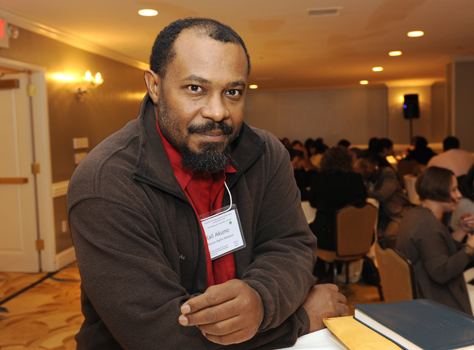Kali Akuno

Before becoming a staff member at the U.S. Human Rights Network, I was a director of the People’s Hurricane Relief Fund in New Orleans, and it took us a while to really incorporate some aspects of the human rights framework, more specifically this notion of the framework of the guiding principles around internal displacement. Now it’s not an official covenant or treaty or anything of that nature, but it’s something developed through the auspices of the UN that really gives a clear framework of both the evacuation process and how that should be done, the recovery process and reconstruction, and the rebuilding process. And us incorporating that into our work, over the course of about three years, of doing the one-on-ones, doing the Town Hall meetings, doing the demonstrations, of consistently using that framework, using that language, using that notion, that we saw gradually over a time the adoption of that on a real grassroots level, to where now it’s a common idiom among certain communities of activists on the Gulf Coast to refer to themselves as IDPs (Internally Displaced Persons). And also the notion that there are rights above and beyond what are listed within the Constitution, or certain policies within the United States government constitutional framework, that they have and that the government has to respect. I think that was one of the most significant victories that I’ve been a part of.


